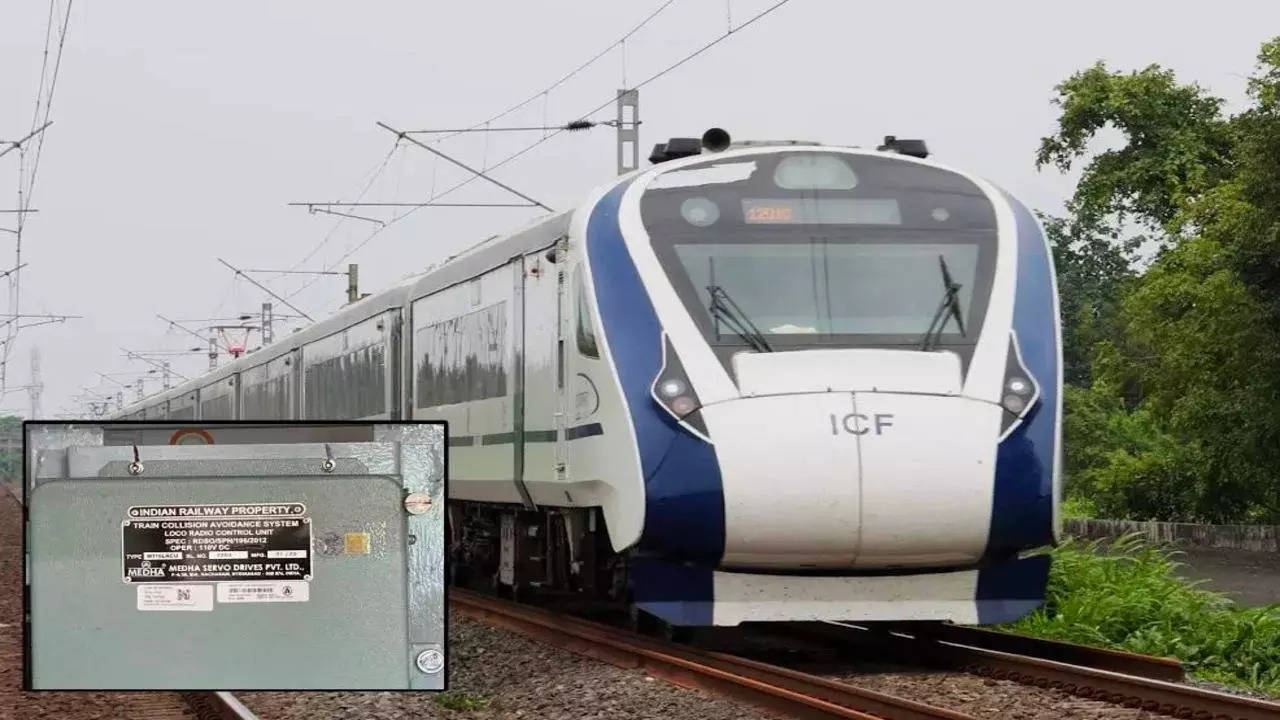According to Vaishnaw, the installation of Kavachwill cover 2,500 km of railway routes in 2024.The deployment will then increase to 5,000 km per year from 2025 until the entire rail network is equipped with Kavach, he told ET. Vaishnaw highlighted the willingness of large electronics and telecom equipment manufacturers to produce Kavach in India, which will boost the industry’s overall capacity.
The effectiveness, ease of implementation, and cost-efficiency of Kavach make it highly exportable in the next five years, Vaishnaw said.
Kavach technology, first tested on a passenger train in 2016, provides protection against signal passing, excessive speed, and collisions, thereby reducing the risk of human error by train operators.
Vaishnaw also said that Indian Railways is getting positive feedback from train drivers regarding this technology. He also stated that neither the driver nor Kavach itself could have prevented the Balasore train accident in Odisha, which occurred in June and claimed the lives of 296 people. Vaishnaw asserted that the Balasore incident was an act of sabotage.
Currently, Kavach is operational on 1,465 km of South Central Railway, with an additional 3,000 km in the Delhi-Mumbai and Delhi-Kolkata sections under installation. Three approved manufacturers, Medha Servo Drives, HBL Power Systems, and Kernex Microsystems, are currently supplying the devices. Bengaluru-based GG Tronics and Mohali-based QFTL are conducting trials of the Kavach technology.
Vande Bharat sleeper coach train to be class apart from Rajdhani – BEML CMD explains | Railways
Furthermore, multinational companies Kyosan and Siemens, which have been developing Kavach prototypes, are expected to join the project soon. The minister highlighted that Kavach will be a significant undertaking for the Indian Railways.
The Union budget for the current fiscal year has allocated Rs 710 crore towards the implementation of Kavach. While previous attempts to introduce the European Train Control System (ETCS) have been unsuccessful, Vaishnaw emphasized that there is no intention of reverting to the ETCS.
The Delhi-Meerut Regional Rapid Transit System, under the Union urban affairs ministry, is using a hybrid version of European hardware, considered superior to ETCS Level 2.
Vaishnaw claimed that Kavach surpasses ETCS in terms of its architecture. He expressed his intent to discuss the adoption of this indigenous technology in future rapid rail services with the urban affairs ministry. The minister also emphasized the Indian Railways’ priority in ensuring a smooth transition of Kavach to LTE technology, requiring an increased number of manufacturers.

